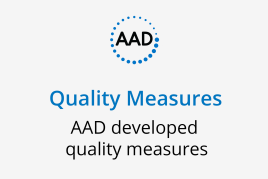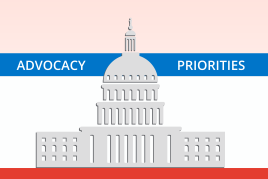Board-certified dermatologist provides tips to relieve discomfort from sunburns
ROSEMONT, Ill. (June 27, 2023) — The July 4th weekend is a time when many Americans will celebrate outdoors at parades, pools and cookouts, but without proper sun protection, they put themselves and their children at risk of getting sunburned, which increases the chances of developing skin cancer.
A recent American Academy of Dermatology survey of more than 1,000 U.S. adults revealed that one-third of American parents reported having a child who was sunburned in 2022. Sunburn, which is the result of skin receiving too much exposure from the sun’s ultraviolet (UV) rays, can cause long-lasting damage to the skin.
“The survey data is troubling because blistering sunburns and childhood sunburns greatly increase your risk of getting skin cancer, including melanoma, the most serious form,” said board-certified dermatologist A. Yasmine Kirkorian, MD, FAAD, chief of dermatology at Children's National Hospital in Washington, D.C. “To some extent, I think parents are aware of the need for sun protection, but at the same time are falling short of adequately protecting their children.”
People can avoid sunburn by seeking shade, remembering that the sun’s rays are the strongest between 10 a.m. and 2 p.m., she said. Additionally, people should wear a lightweight and long-sleeved shirt, pants, a wide-brimmed hat, and sunglasses with UV protection, when possible.
The third component of sun protection is applying a broad-spectrum, water-resistant sunscreen with an SPF of 30 or higher to all skin not covered by clothing and reapplying every two hours or after swimming or sweating, said Dr. Kirkorian.
“I tell parents to make sure that their children are willing to apply sunscreen themselves,” said Dr. Kirkorian. “For their faces in particular, it’s often best to try a stick sunscreen because it’s easier to apply. I also recommend that they tell their children to go inside to rest during the times of the day when the sun is the strongest.”
If you get a sunburn, it is important to begin treating it as soon as possible, so the best thing to do is get out of the sun and go indoors, she said.
Dr. Kirkorian and the AAD recommend the following tips to help relieve discomfort from a sunburn:
Take frequent cool baths or showers to help relieve the pain. As soon as you get out of the bathtub or shower, gently pat yourself dry, but leave a little water on your skin. Then, apply a moisturizer to help trap the water in your skin. This can help ease the dryness.
Use a moisturizer that contains aloe vera or soy to help soothe sunburned skin. If a particular area feels especially uncomfortable, you may want to apply a hydrocortisone cream that you can buy without a prescription. Do not treat sunburn with “-caine” products (such as benzocaine), as these may irritate the skin or cause an allergic reaction.
Consider taking aspirin or ibuprofen to help reduce any swelling, redness and discomfort.
Drink extra water. A sunburn draws fluid to the skin’s surface and away from the rest of the body. Drinking extra water when you are sunburned helps prevent dehydration.
If your skin blisters, allow the blisters to heal. Blistering skin means you have a second-degree sunburn. You should not pop the blisters, as blisters form to help your skin heal and protect you from infection.
Take extra care to protect sunburned skin while it heals. Wear clothing that covers your skin when outdoors. Tightly-woven fabrics work best. When you hold the fabric up to a bright light, you shouldn’t see any light coming through.
“If your skin starts to blister and you feel unwell from the blisters or heat exhaustion, then you should seek care from an emergency room,” said Dr. Kirkorian. “Similarly, if the blisters are very large, you’ll want to seek medical care. If you have any questions about ways to properly protect yourself and your family from the sun, partner with a board-certified dermatologist.”
To find a board-certified dermatologist in your area, visit aad.org/findaderm.
# # #
Contact
Rhys Saunders, rsaunders@aad.org
Media Relations, mediarelations@aad.org
More Information
Practice Safe Sun
How to Treat Sunburn
AAD B-Roll Library
About the AAD
Headquartered in Rosemont, Ill., the American Academy of Dermatology, founded in 1938, is the largest, most influential and most representative of all dermatologic associations. With a membership of more than 20,800 physicians worldwide, the AAD is committed to advancing the diagnosis and medical, surgical, and cosmetic treatment of the skin, hair, and nails; advocating high standards in clinical practice, education and research in dermatology; and supporting and enhancing patient care because skin, hair, and nail conditions can have a serious impact on your health and well-being. For more information, contact the AAD at (888) 462-DERM (3376) or aad.org. Follow @AADskin on Facebook, Pinterest and YouTube and @AADskin1 on Instagram.
Editor’s note: The AAD does not promote or endorse any products or services. This content is intended as editorial content and should not be embedded with any paid, sponsored or advertorial content as it could be perceived as an AAD endorsement.
 Find a Dermatologist
Find a Dermatologist
 Member directory
Member directory
 AAD Learning Center
AAD Learning Center
 2025 AAD Innovation Academy
2025 AAD Innovation Academy
 Need coding help?
Need coding help?
 Reduce burdens
Reduce burdens
 Clinical guidelines
Clinical guidelines
 Why use AAD measures?
Why use AAD measures?
 Latest news
Latest news
 New insights
New insights
 Physician wellness
Physician wellness
 Joining or selling a practice?
Joining or selling a practice?
 Promote the specialty
Promote the specialty
 Advocacy priorities
Advocacy priorities
